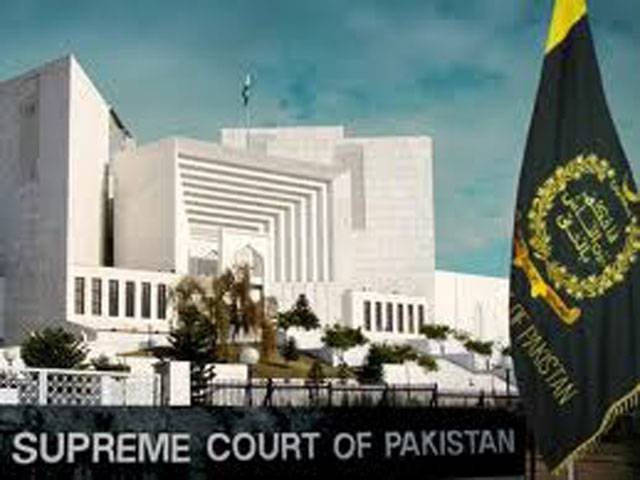ISLAMABAD - The Supreme Court has stamped on a much wider scope of National Accountability Ordinance (NAO), 1999, by ruling that under this law the NAB can even proceed against a person who is not holder of a public office.
About eight years ago various petitions were filed raising the question whether the provisions of the NAO were applicable to someone not holding a public office. On Friday, a three-member apex court bench headed by Justice Anwar Zaheer Jamali issued the significant 43-page judgment, authored by Justice Asif Saeed Khosa.
The court held: “The provisions of the National Accountability Ordinance, 1999 are applicable even to a person who is not holder of a public office and also to a person who has not aided, assisted, abetted, attempted or acted in conspiracy with holder of a public office and the words ‘any other person’ appearing in section 9(a) of the said Ordinance are to be understood and applied accordingly.”
The court also clarified that a stand-alone private person could be proceeded against under the said law if the other conditions mentioned in that ordinance in that respect are satisfied. It directed the SC Office to fix the titled appeals and petitions for hearing before appropriate benches of the court for their decision on the basis of their individual factual and legal merits.
The court said it accepts the ‘justified’ stance of the “Federation of Pakistan that the provisions of the said Ordinance are applicable not just to holders of public offices and to persons who aid and abet or conspire with holders of public offices but also to any other person who may not be holder of any public office or connected with holder of a public office in any manner”.
The court said the preamble to the Ehtesab Act, 1997 manifested that the said law had been enacted only ‘for eradication of corruption and corrupt practices from the public offices’ whereas the Preamble to the National Accountability Ordinance, 1999 does not even mention ‘public offices’ and instead it states the objects to be achieved as to eradicate corruption and corrupt practices and hold accountable all those persons accused of such practices; to provide for effective measures for the detection, investigation, prosecution and speedy disposal of cases involving corruption, corrupt practices, misuse or abuse of power or authority, misappropriation of property, taking of kickbacks, commissions;
And recovery of outstanding amounts from those persons who have committed default in the repayment of amounts to banks, financial institutions, governmental agencies and other agencies; recovery of state money and other assets from those persons who have misappropriated or removed such money or assets through corruption, corrupt practices and misuse of power or authority; to seek, obtain or give mutual legal assistance internationally in matters concerning corruption; and to educate the society about the causes and effects of corruption and corrupt practices and to implement policies and procedures for the prevention of corruption in the society.
The court held that the scope of applicability of the National Accountability Ordinance, 1999 is much larger than the scope envisioned in the Ehtesab Act, 1997 and, thus, it would be naïve to examine the former through the narrow prism of the latter. The stated object of the NAO was to rid the whole society of the menace of corruption.
“We may add that the offence of cheating mentioned in section 9(a)(ix) of the National Accountability Ordinance, 1999 and the offence of criminal breach of trust referred to in section 9(a)(x) of that Ordinance can be dealt with under the said Ordinance only if such offences affect “the public at large”, as stipulated therein, and, thus, a reasonable classification exists in those provisions so as to ward off a criticism based upon discrimination,” the judgement read.
It adds: “The question as to whether an alleged cheating or criminal breach of trust affects the public at large or not is a question which is initially to be determined by the National Accountability Bureau and its Chairman and subsequently such determination may, in an appropriate case, be amenable to judicial review. Apart from that the constitutional validity of the National Accountability Ordinance, 1999 and all its provisions has already been judicially determined by this Court in the case of Khan Asfandyar Wali (supra) and, therefore, there is hardly any occasion for us to re-examine the same at this stage.”
Friday, April 19, 2024
Court rules blanket scope of NAB law

9:07 PM | April 18, 2024
King Charles's cancer ‘eating him alive,' monarch unable to perform duties: Insider
1:02 AM | April 19, 2024
Mehwish Hayat says she would like to work with Aamir Khan
9:59 PM | April 18, 2024
What caused record-breaking rainfall in UAE?
9:58 PM | April 18, 2024
Donald Trump discusses Ukraine, Middle East, NATO with Polish President Duda
9:57 PM | April 18, 2024
'That'll be awesome,' Rohit Sharma on idea of Pakistan vs India Test series
9:17 PM | April 18, 2024
Hepatitis Challenge
April 18, 2024
IMF Predictions
April 18, 2024
Wheat War
April 18, 2024
Rail Revival
April 17, 2024
Addressing Climate Change
April 17, 2024
Justice denied
April 18, 2024
AI dilemmas unveiled
April 18, 2024
Tax tangle
April 18, 2024
Workforce inequality
April 17, 2024
New partnerships
April 17, 2024
ePaper - Nawaiwaqt
Advertisement
Nawaiwaqt Group | Copyright © 2024





